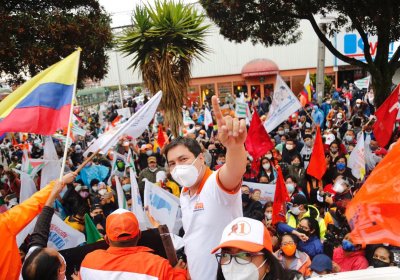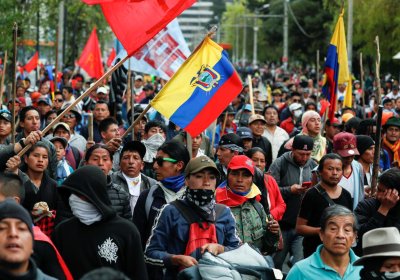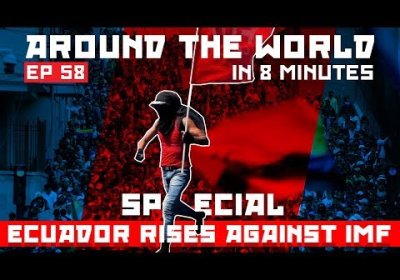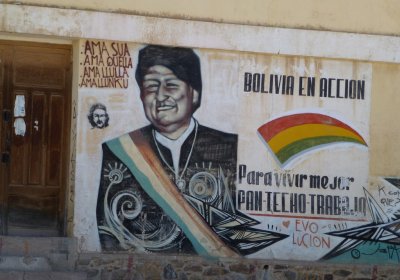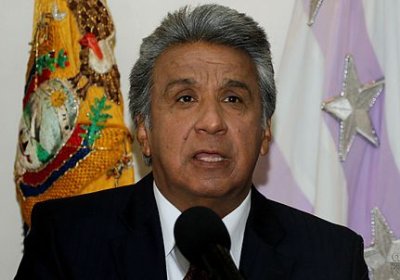The establishment are trying every trick to exclude leading opposition ticket Union for Hope from the presidential election, writes Harvey Goldberg.
Ecuador
The ruling class’ brutal project of neoliberalism in Ecuador is making life unbearable for the people reports Yanis Iqbal.
A recent poll shows if opposition candidate Andrés Arauz Galarza is allowed to run in Ecuador’s presidential election next year, he will win, write Vijay Prashad and Pilar Troya. But, if the ruling bloc in Ecuador has its way, Arauz will not be sworn in as the next president in 2021.
Ecuador was the first country in the world to enshrine the rights of nature in its constitution. But, as Anthony Amis reports, international mining companies have been given the green light to exploit the country’s copper and gold reserves.
Sentencing former President Rafael Correa to eight years in jail is a desperate move by a repressive administration trapped in a crisis of its own making, writes Denis Rogatyuk.
There are celebrations in Ecuador. They began on October 13, when the government and the Indigenous movement, centrally grouped in the Confederation of Indigenous Nationalities of Ecuador (CONAIE), announced they had reached an agreement on Decree 883, which removed fuel subsidies.
The response was twofold.
In a victory for the social movement that brought Ecuador’s capital, Quito, to a halt for 11 days, Decree 883 — which had scrapped fuel subsidies — was finally repealed on October 15, writes Jelena Rudd from Quito.
The people of Ecuador took part in a massive national strike on October 9, called by a number of organisations against the neoliberal reforms of President Lenin Moreno.
Ecuador’s workers are rising up against President Lenin Moreno’s IMF-mandated neoliberal attacks, writes Denis Rogatyuk.
“They tried to bury us. They did not know we were seeds”. The old Mexican proverb never sounded more true than in the early hours of the morning of March 25 across Ecuador.
The local and regional elections that took place the previous day were meant to put a definitive end to the political phenomenon of the Citizens Revolution and bury, once and for all, the legacy of former left-wing president Rafael Correa.
Bolivian President Evo Morales launched a free universal healthcare system to new health system which will benefit about five million Bolivians between the ages of 5 and 59 who previously lacked free coverage.
Nearly ten thousand public servants have been fired in Ecuador following President Lenin Moreno's agreement with the International Monetary Fund.
- Previous page
- Page 2
- Next page
